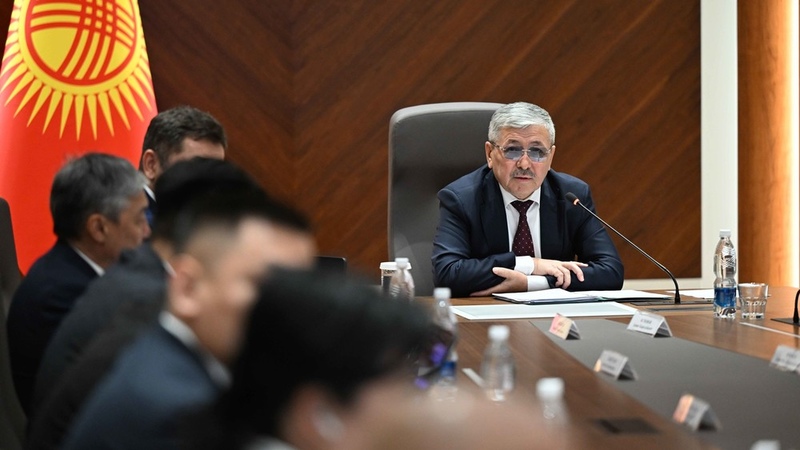
Registration Opens for SAF 2025: International STEAM Azerbaijan Festival Welcomes Global Youth
The International STEAM Azerbaijan Festival (SAF) has officially opened registration for its 2025 edition!

Bishkek – In a recent Government Accelerators session, Adylbek Kasymaliev, Chairman of the Cabinet of Ministers and Head of the Presidential Administration of Kyrgyzstan, reaffirmed the government's commitment to affordable education and tackling the shortage of school facilities, particularly in densely populated areas (Kutbilim).
To tackle severe overcrowding and improve access to quality education, the Kyrgyz government is moving swiftly to reform the licensing and support system for private schools. Prime Minister Adylbek Kasymaliev emphasized that partnering with the private sector is essential to expanding educational opportunities, especially in regions where public schools struggle to keep up with growing demand. As part of the Government Accelerators program, a 100-day fast-track reform initiative, officials aim to simplify the process for private schools to open and operate. This approach is designed to ease pressure on the public education system while maintaining high standards.
Key points of the reform include:
Kasymaliev’s statements reflect Kyrgyzstan’s ongoing commitment to the UN Sustainable Development Goal 4, which aims to ensure inclusive and equitable quality education for all. In April 2024, during a forum with international development partners, Kyrgyz authorities introduced the “Altyn Kazyk” Education Program, a comprehensive reform initiative that includes:
Additionally, this initiative is supported by broader international efforts; for example, the Asian Development Bank (ADB) has approved a $40 million program to strengthen education infrastructure and governance in Kyrgyzstan (ADB News).
Kasymaliev stressed that the private education sector is now viewed not as a competitor but as a key partner in promoting educational equity. The upcoming reforms focus on:
With a 100-day timeline underway, tangible progress is expected by autumn 2025. The Education Ministry will lead efforts to review and streamline licensing procedures to help achieve these goals (Kutbilim).
This new wave of education reform reflects a pragmatic and inclusive approach to public-private collaboration in Kyrgyzstan’s school system. As population growth and urbanization continue, coordinated efforts across sectors will be crucial to ensuring every child has a seat in a quality classroom.
Share

Registration Opens for SAF 2025: International STEAM Azerbaijan Festival Welcomes Global Youth
The International STEAM Azerbaijan Festival (SAF) has officially opened registration for its 2025 edition!

Join the Edu-live Internship Program!
Are you passionate about journalism, education, science, as well as global study and development opportunities? Do you want to be part of a dynamic media platform that brings educational and scientific news and stories to life from around the world?

Young Leaders Union Conference 2025 in Paris (Fully Funded)
Join Global Changemakers in Paris! Fully Funded International Conference for Students, Professionals, and Social Leaders from All Nationalities and Fields

Yer yürəsinin daxili nüvəsində struktur dəyişiklikləri aşkar edilib
bu nəzəriyyənin doğru olmadığı məlum olub. Seismik dalğalar vasitəsilə aparılan tədqiqatda daxili nüvənin səthindəki dəyişikliklərə dair qeyri-adi məlumatlar əldə edilib.

An mRNA cancer vaccine may offer long-term protection
A small clinical trial suggests the treatment could help keep pancreatic cancer from returning

Lester B Pearson Scholarship 2026 in Canada (Fully Funded)
Applications are now open for the Lester B Pearson Scholarship 2026 at the University of Toronto!